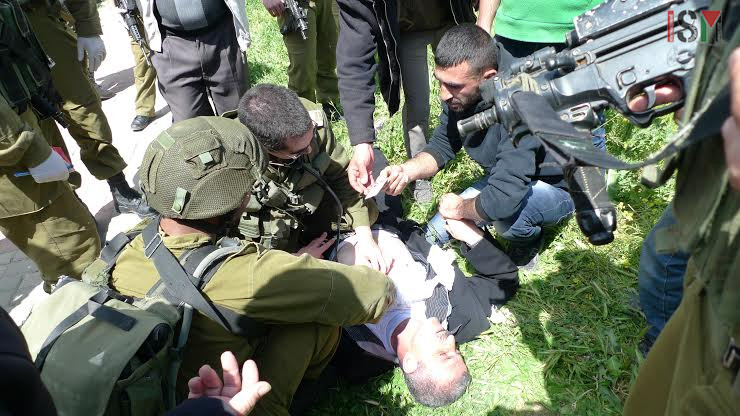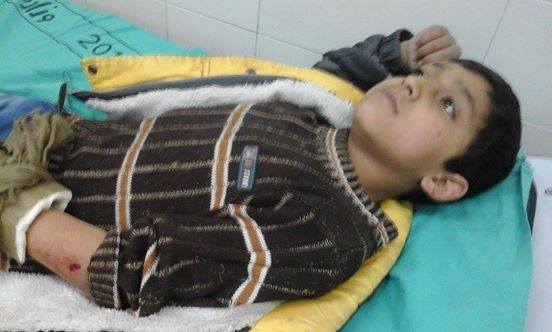Tag: settler attack
-

Peaceful tree planting attacked by settlers and soldiers, two hospitalised and one arrested
1st April 2015 | International Solidarity Movement, Khalil Team | Hebron, Occupied Palestine On March 31st around 40 Palestinian children and adults gathered in Hebron near Qurtuba school, a Palestinian school in the H2 neighbourhood of Tel Rumeida, to plant trees in commemoration of Palestine’s Land Day. Israeli extremist settlers from the illegal settlements in Al-Khalil (Hebron) attacked…
-

10-year-old boy attacked and arrested for playing in the snow
22nd February 2015 | International Solidarity Movement, Khalil Team | Hebron, Occupied Palestine On the afternoon of the 21st of February Saleh Abu Shamsiya, a 10-year-old Palestinian boy, was attacked by settler youth in the Al-Khalil (Hebron) neighborhood of Tel Rumeida. Saleh’s father and activist with the group Human Rights Defenders Imad Abu Shamsiya reported that the settlers, who looked around 18-19 years old, surrounded his son while…
-

Israeli settlers cut 36 olive trees in the South Hebron Hills
22nd February 2015 | Operation Dove | South Hebron Hills, Occupied Palestine On the morning of February 20, Palestinians in the South Hebron Hills awoke to find that 36 olive trees had been cut or seriously damaged during the night, probably by Israeli settlers. The 25 year-old trees, owned by the Hushiy family from Yatta, were located near the village…
